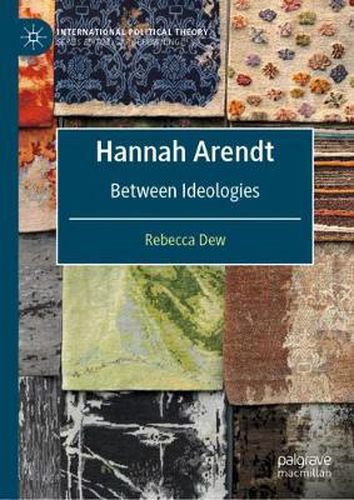Readings Newsletter
Become a Readings Member to make your shopping experience even easier.
Sign in or sign up for free!
You’re not far away from qualifying for FREE standard shipping within Australia
You’ve qualified for FREE standard shipping within Australia
The cart is loading…






This book presents an incisive survey of twentieth-century transatlantic ideational exchange. The author argues that German-American political thinker Hannah Arendt is to be distinguished not only from the French side of the existentialist movement, but singled out from Heidegger on the German side, as well. The primary feature of Arendt’s existentialism is its practicality in political terms; its acknowledgment of the vital need for viable public spaces of vocalization, action and interaction; its recommendation of councils, constitutions and other structural foundations for the visible presentation of politics; and the applicability of her view of political action to her estimation of authentic human living. Drawing from the work of Karl Jaspers as her primary exemplar, conclusions are made as to the degree to which Arendt’s existentialism, thereby identified as atypical, is to be assessed as postmodern without going so far as to declare her intellectual bent postmodernist.
$9.00 standard shipping within Australia
FREE standard shipping within Australia for orders over $100.00
Express & International shipping calculated at checkout
This book presents an incisive survey of twentieth-century transatlantic ideational exchange. The author argues that German-American political thinker Hannah Arendt is to be distinguished not only from the French side of the existentialist movement, but singled out from Heidegger on the German side, as well. The primary feature of Arendt’s existentialism is its practicality in political terms; its acknowledgment of the vital need for viable public spaces of vocalization, action and interaction; its recommendation of councils, constitutions and other structural foundations for the visible presentation of politics; and the applicability of her view of political action to her estimation of authentic human living. Drawing from the work of Karl Jaspers as her primary exemplar, conclusions are made as to the degree to which Arendt’s existentialism, thereby identified as atypical, is to be assessed as postmodern without going so far as to declare her intellectual bent postmodernist.